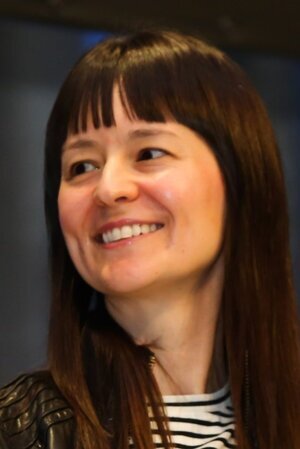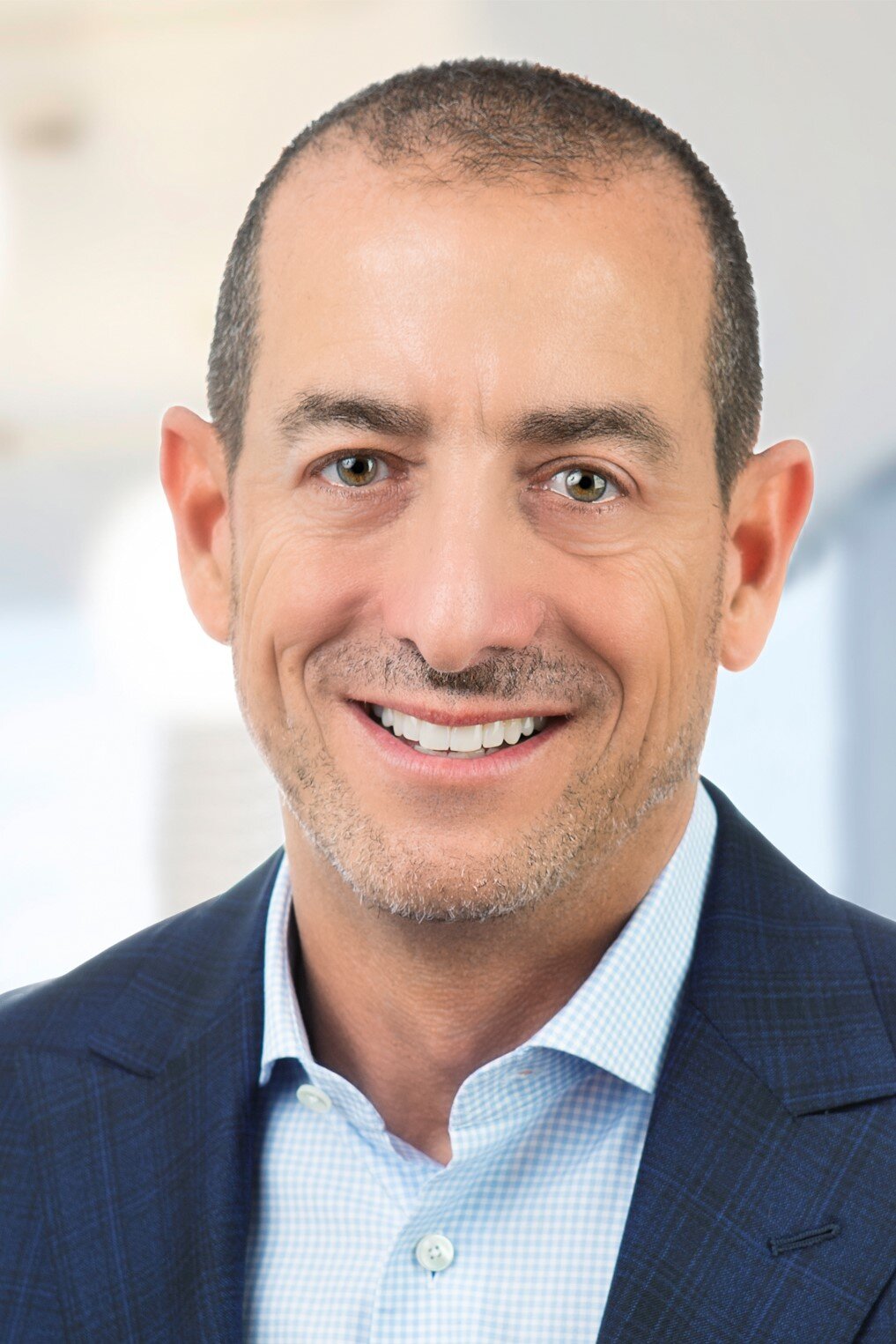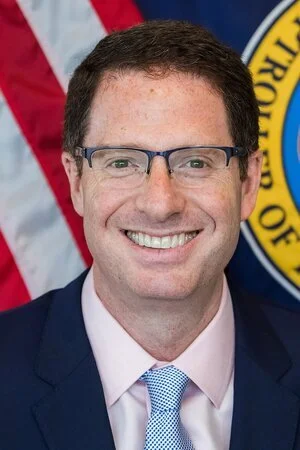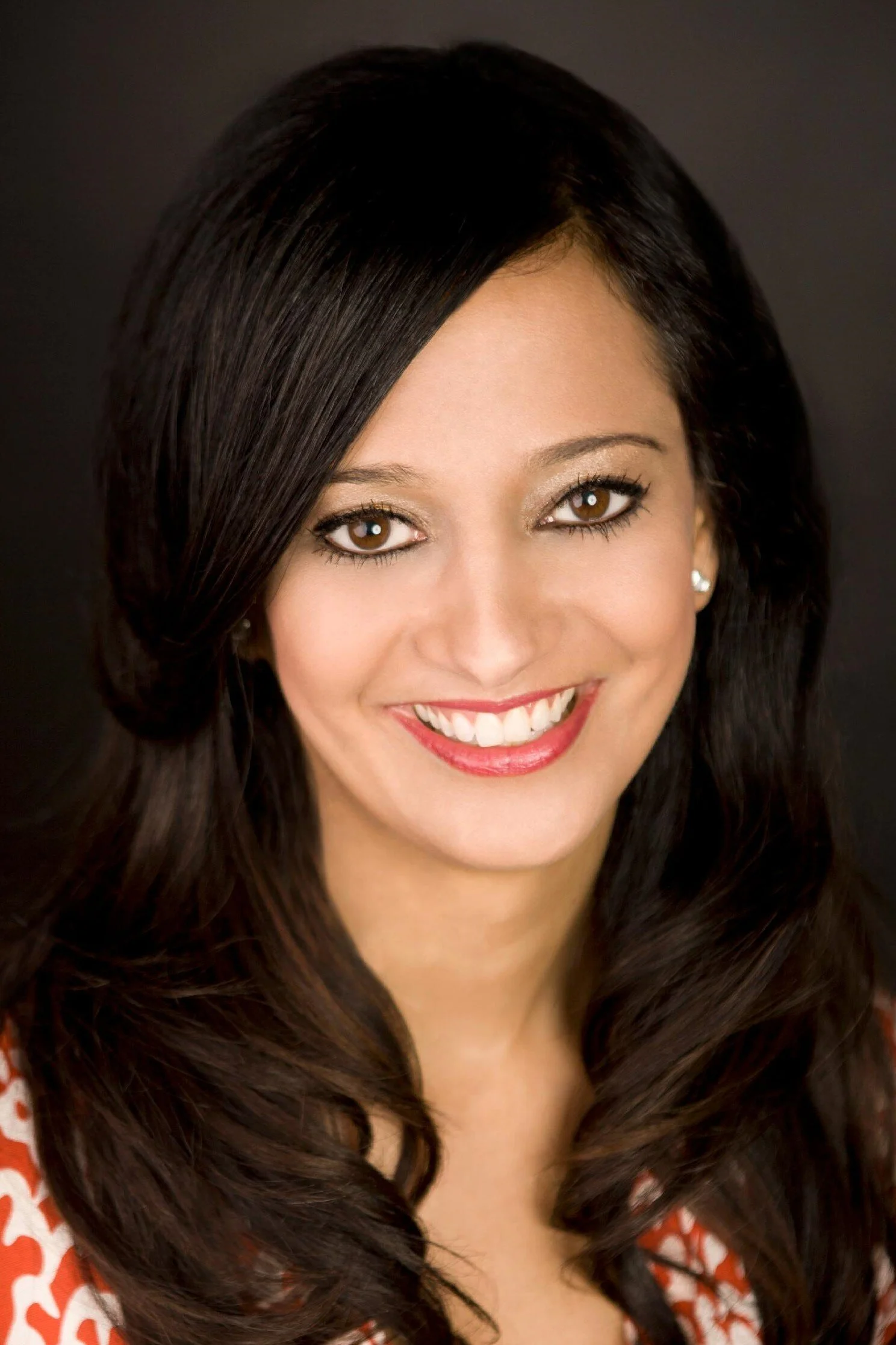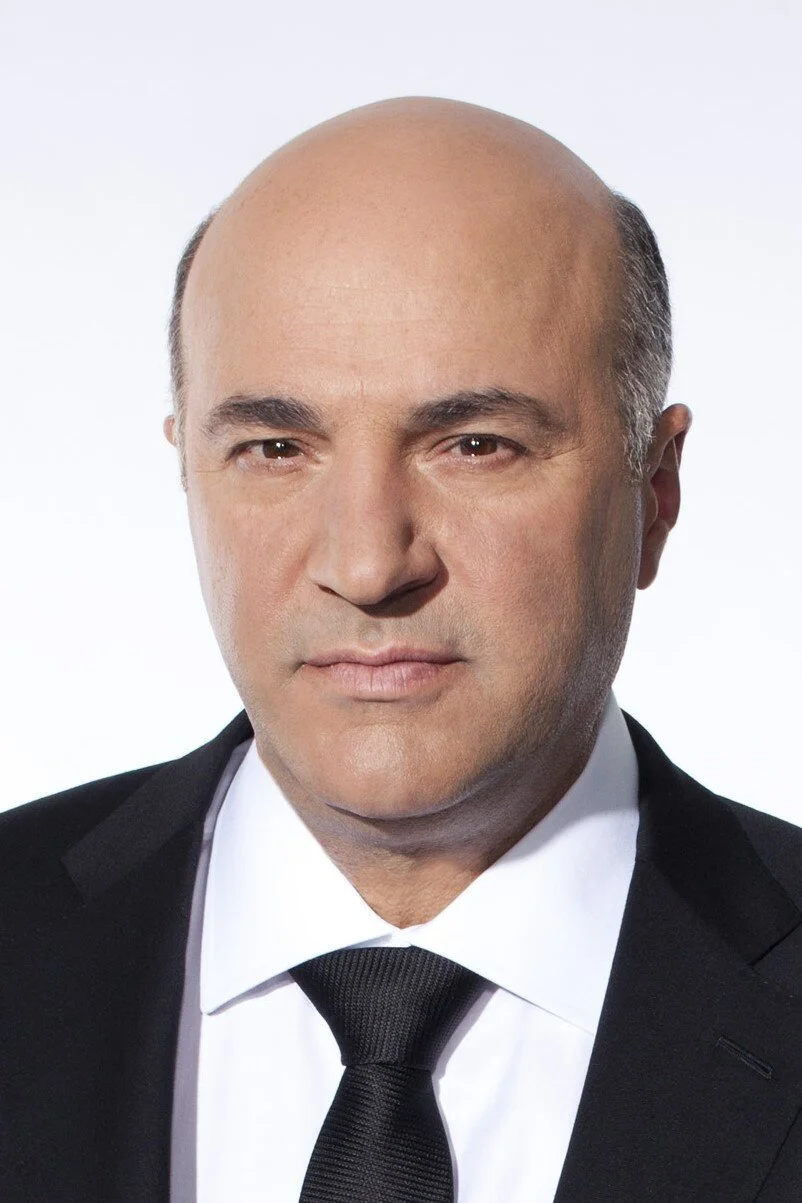Bitcoin for Billions: Building the Lightning Network with Elizabeth Stark, Chief Executive Officer & Co-Founder, Lightning Labs.
Moderated by Brett Messing, Partner, President & Chief Operating Officer, SkyBridge.
MODERATOR
SPEAKER
Elizabeth Stark
Chief Executive Officer & Co-Founder
Lightning Labs
Brett Messing
Partner, President & Chief Operating Officer
SkyBridge
TIMESTAMPS
EPISODE TRANSCRIPT
Brett Messing: (00:07)
Well a year ago I was working out on a Peloton because it was a pandemic. And I was studying about Bitcoin because it was a pandemic. And I was listening to a podcast by Peter McCormack about the Lightning Network and I was blown away and I got off the podcast and I called Ross Stevens of NYDIG, our sponsor. And I said, can they really do that? Because if they can really do that, this is so much bigger than I realize. And he said, they can do that. You have to speak to Elizabeth Stark. So here we are. What is the Lightning Network? No E by the way, Lightning without an E. And why is it important?
Elizabeth Stark: (00:50)
Thanks, Brett. First of all, it's so incredible to be here today as a New Yorker with this crowd here, being in the financial center of the world and one of the tech centers of the world. So, Ross is correct. This is possible. And the Lightning Network is a technology that enables instant high volume transactions over Bitcoin. You can think of it as kind of this second layer as we call it or a transaction layer operating on top of the Bitcoin blockchain. So today on the internet, and by the way, I'm a tech geek. I come from the land of magic internet money as we say in the Bitcoin world. Today on the internet, it's really easy to send a photo in any application to somebody anywhere around the world instantly, right? You can do it in text message. You can send it via Twitter, WhatsApp, in a variety of ways. But why can't you send value?
Elizabeth Stark: (01:46)
So being the internet geek that I am, in the early days of the internet I wondered why can't you actually just send money? For example, I love music, to a musician, to a band, to a DJ, to somebody that created a video and just embed it natively in the internet. So the goal with Lightning is to be able to natively embed value and payments in the internet. In fact, the early creators of the internet, Tim Berners-Lee, in the early nineties envisioned that this would be the case back then. They created an error code it's called HTTP 402 payment required, which is kind of like 404 not found, it just was too early.
Elizabeth Stark: (02:21)
So when I learned about Bitcoin, I thought, this is really cool. You know, will this actually scale? And will people be able to use it to natively embed payments on the internet? And then I learned about the possibility of this second layer operating on top of Bitcoin that can scale it to billions of people and I was sold. And this was actually back in 2014 when I first learned about this concept. So a lots happened since then, and I'm excited to chat about it today.
Brett Messing: (02:47)
So what is a use case for the Lighting Network? Because you know, I think for many people they look at Bitcoin, they see the price go up, particularly I think Americans, they don't see the utility of it. And I think the thing that's interesting about Lightning is it is bringing utility to Bitcoin. So why don't we talk about what Lightning can do? Why are we so excited?
Elizabeth Stark: (03:11)
Definitely. So Bitcoin's first killer use case or killer app is that of Bitcoin the asset. So in 2009, Satoshi, third January 2009, the [inaudible 00:03:22] creator of Bitcoin launched the Bitcoin network. And everyone's familiar I'm thinking here today with Bitcoin the asset. You buy it, the price has gone up substantially. The community has a meme. We call it number go up technology, right? The idea that the price of Bitcoin will go up and there are only 21 million that ever exist. But what got me interested in Bitcoin was less of the asset element and more of the idea that Bitcoin can really be this internet of money. So with Lightning Network we're actually building Bitcoin, the monetary network, and it's really about three years old. So Lightning initially launched as a protocol in 2018 on the main Bitcoin network. We call that main net. My company, Lightning Labs built some of the leading tools for developers to build on this technology.
Elizabeth Stark: (04:06)
And the goal there is to have internet native digital money. If Bitcoin is just the equivalent of digital gold or a digital rock, then we don't actually tap into the use cases where you can natively embed payments on the internet and have programmable money. So the goal with Lightning is really to enable this. So you asked about use cases. So the way that I think about it, in the early days of the internet, people didn't envision the use cases that are commonplace to us today. Something like a Google, a Wikipedia, Airbnb and Uber, that's the same for the internet of money. There are all sorts of use cases. For example, in game payments for video game developers, streaming SATs, or Satoshis as we call it, for streamers, for podcasters, for people, creators on the internet. We also have the ability to have cross-border payments instantly with extremely low fees, adoption and emerging markets.
Elizabeth Stark: (04:56)
So there are these use cases that weren't previously possible. And then also people that did not previously have access. Some people think, okay, why do I need Bitcoin today? I have my credit card. Well, there are billions of people around the world that do not have access to the existing credit card networks who charge something like 250, maybe even 300 basis points for a transaction. And we're actually seeing today adoption in many of these markets. El Salvador, some people may have heard recently made Bitcoin legal tender. Today, Starbucks, there's a great company called IBEX Mercado, McDonald's, one called OpenNode and a variety of major retailers are using the Lightning network today, built on the technology that my company has created. Which if you'd asked me a couple months ago if this would happen, I probably would not have believed it, but welcome to 2021. So there are huge opportunities for people globally that don't have access to the financial rails that we do here in the US.
Brett Messing: (05:53)
So you mentioned like Uber and Airbnb, sort of disruptive technologies. It seemed to me that the thing that exploded in my mind when I heard about Lightning was the remittance market. And can you just explain how that works? So let's just say I'm sending money to someone in Mexico City on Lightning. I just think people would find it interesting just how functional it is.
Elizabeth Stark: (06:18)
Definitely. So there's some great companies already out there. There's one called Strike, another one called Paxful that are enabling cross-border payments with Bitcoin and Lightning. So the way that this would work is a user using a service could convert say US dollars to Bitcoin's sent over the Lightning network and Lightning enables these instant high volume transactions. And then it could be converted back at the point of receipt to say peso. And you have Western Union and major players out there that are charging very high fees, especially for low value transactions. You might have to physically go to a location. All this can be done with a smartphone, right? And we see in emerging markets a huge amount of smartphone penetration, many people have access to those. So in these markets, people are able to leapfrog over the outmoded technologies to be able to adopt instant, high volume transactions over Bitcoin and Lightning.
Elizabeth Stark: (07:13)
And one key element is people say, okay, volatility. That can be a question. Well, when you have instant transactions and you want to go from USD to Bitcoin over Lightning to another currency, say peso, you actually aren't exposed to that volatility, which is key. In that case, of course, some people want Bitcoin. I like to say, Bitcoin is a millennial retirement account. I have a number of friends here in New York City, they are very short on dollars and they hold a lot of Bitcoin as part of their strategy.
Elizabeth Stark: (07:40)
But it depends on the individual. But in this case, Bitcoin is serving as a value transport layer, as I like to think about it. And the vast majority of users in the future likely will not know that they're using Bitcoin. They just think they're sending value on the internet and maybe denominated in their local currency. And that's the way the internet works today. For example, people that use say email may not know that SMTP is a protocol underlying email. They just use their Gmail. Email's not even that cool anymore. But that will be the same with Bitcoin and Lightning and the internet of money.
Brett Messing: (08:14)
Okay. So we mentioned El Salvador, just like I guess in the development of Bitcoin, which you've been a part of for a long time now, big deal, little deal? I think when I think about what you're doing, you're really bringing Bitcoin to the masses. It's like, what does this mean Bitcoin being legal tender in a country?
Elizabeth Stark: (08:40)
Definitely. So my company Lightning Labs, we're about 25 people these days and we have a number of brilliant developers and credit, for example, to my co-founder and our CTO, his name is Olaoluwa Osuntokun, who was born in Nigeria, came to the US when he was younger and has seen the value of all of this, especially with family back in Nigeria, brilliant engineer. And so if you had told me even six months ago we would have seen nation state level adoption of both Bitcoin and Lightning, I would not have believed that. And it happened. And even though, El Salvador being a small nation, six some odd million people, I believe it is historic and significant that this level of adoption has occurred. And a number of retailers are now using the Lightning network. So Bitcoin, the community loves Twitter, right? People are on Twitter.
Elizabeth Stark: (09:37)
I'm sure you've seen a lot of that. And there was a tweet this week because last Tuesday was the launch of this law in El Salvador and a number of these retailers were using Lightning, the technology that we had built called L and D from my company, and a fee at Starbucks for a user paying over the Lightning network was five hundredths of a cent, which I thought was just incredible. I mean, compare that to the types of fees that people would pay for the traditional card networks. So there's a joke in the community about paying for coffee with Bitcoin and in the US it is not necessarily hard to pay for coffee, but in many other emerging markets, the rails are not there and they're actually able to use this technology. So to me, I believe it is quite significant. There's also been a domino effect.
Elizabeth Stark: (10:27)
There's a great company out there called Galoy who's building an app called Bitcoin Beach. And this actually is what got the whole El Salvador movement started. They have a community in the south of El Salvador, a surfing community, where they've been using Bitcoin and Lightning for two years now in what we call a circular economy. So their vendors don't have access to card networks, but they have smartphones. So they're actually using Bitcoin and Lightning to send and receive money and vendors are able to accept it. And to me, that community is just the big beginning. That company has heard from so many other governments, communities around the world that are interested in this technology. So El Salvador is the first, it's certainly not the last. And I believe we will see a variety of other particularly emerging market nations move forward on Bitcoin adoption.
Brett Messing: (11:13)
So you mentioned Twitter, which is important in the Bitcoin community, the community sort of lives on Twitter. No one or very few people have done more for Bitcoin than Jack Dorsey, who also had the wisdom to invest in Lightning Labs. Jack Dorsey, according to public reports is about to integrate Lightning into Twitter. Can you speak about, to the extent you can, what is forthcoming? Again, I think the thing that's really interesting is the utility and what services Lightning is empowering.
Elizabeth Stark: (11:50)
Definitely. So I'm just speaking from kind of the outside here as an observer. And yes, Jack Dorsey is one of our investors and has been incredibly helpful and also just somebody who really understood Bitcoin at the outset and seeing that it can be this native protocol for value and currency of the internet. And so I believe that fits into a strategy with Twitter. So part of what got me interested in Bitcoin and Lightning in the first place is this idea of internet native digital payments and the creator economy. And what better place for this than Twitter? Yes, the Bitcoin community loves to, sometimes they have lots of fights on Twitter and debates. I've definitely been in the middle of those, but also there are a lot of people that will create tweetstorms and post videos and have all sorts of really interesting, I mean, I learn so much from Twitter and it's a way for me to find really interesting links and research and discover new people.
Elizabeth Stark: (12:45)
We've made hires for Lightning Labs of people from Twitter. And we love memes in the Bitcoin and Lightning community. So the idea there is, well, okay, Bitcoin and Lightning enable instant high volume, low fee transactions around the world globally. If we were to use existing payment rails, and I think what they would likely do is have a variety of options. Some on the existing rails, some using Bitcoin and Lightning, you can get to far more people globally than you would be able to, and it makes a lot of sense. You have a younger population as well that very much wants more Bitcoin. They want to be able to hold us. They want to be able to earn Bitcoin. Sometimes people say, well, I don't want to spend Bitcoin, but Lightning enables people, unlike say a Visa, sometimes people say, okay, Lightning's like a decentralized Visa.
Elizabeth Stark: (13:30)
And there are elements of that, but you don't really earn money on Visa, but with Lightning you can. So we see a lot of really interesting use cases like the Twitter one, which will enable content creators to earn over Lightning. There's an incredible company called Stack, which enables people globally, Latin America, Southeast Asia, to earn Bitcoin over Lightning performing small tasks like for AI and machine learning. There's another one called Zebedee for internet gaming where today gamers in Brazil are earning more over Lightning with Bitcoin than they would in a normal job for their salary by actually just doing what they love, which is playing video games. So we're able to unlock these incredible opportunities that would not have previously been possible. And that's where I see Twitter fitting in as well.
Brett Messing: (14:13)
So it's sort of like tipping, right? Is that a way to think about it, right, that if I post something you think it's cool, Lightning's going to enable you to tip me in Bitcoin?
Elizabeth Stark: (14:26)
Yeah. I mean, there are all sorts of interesting examples. People could participate say in certain campaigns as well. There was a really incredible campaign recently where a group called Bitcoin Smiles in the Bitcoin community raised money for people in El Salvador who could not afford dental or hence smiles. And just, this community, people by the way, they do this on their nights and weekends, this is not their job. They just love it and they really care. And so you could have charity contributions and things like that as well. I think there are a lot of really interesting opportunities.
Brett Messing: (14:58)
So I want to just scope out a little bit, as I'm sure everyone can tell you're super enthusiastic about this. And the thing that brought you to it is sort of a passion for open source decentralized networks. I can speak for myself, I don't think I fully appreciated the significance of a decentralized network until recently. And I would say the China ban on mining hammered it home for me, but I'm probably still not as far along on it as I should be. Can you just speak to that? And I mean, I want to hear your answer, I'm sure other people do too as well.
Elizabeth Stark: (15:33)
Definitely. So the way that I like to think about it, being the internet geek that I am, in the early days of the internet folks may remember AOL, CompuServe, Prodigy, and the like, right? Those are proprietary networks. To have an AOL keyword, you had to go to AOL and get permission. And then there was a worldwide web and anybody could build on the web. And ultimately it was the web that won out in terms of all of the incredible sites and businesses that have been built on the web today. And I see the same for Bitcoin as this internet of money in that the ability for anybody to build on top of Bitcoin, you don't have to ask permission, you're able to do so and Lightning makes it easier for developers to build on top of it because you have these instant transactions as opposed to the 10 minute block time of Bitcoin. You have the scalability as opposed to the five to 10 transactions for a second.
Elizabeth Stark: (16:22)
And then you have the fees that can spike on the base layer of the Bitcoin blockchain. So the open nature of Bitcoin and Lightning means that it's available to people around the world. For example, there's an incredible entrepreneur named Bernard Parah out of Nigeria who just built an application called Bitnob. And he just spun up a group of developers, and now they have this business and they're building for Bitcoin and Lightning, and he didn't have to go and get permission. It's just open. And now you can use the Strike app to actually send remittances to Nigeria because Bernard was able to tap into this technology and the Lightning network. And to me, that's what's extremely powerful. And then some people might ask, okay, well, there are all these other cryptocurrencies, why focus on Bitcoin, as my company Lightning Labs and as our community in the Lightning Network community? And the answer is ultimately network effects.
Elizabeth Stark: (17:15)
Right now, Bitcoin is the most secure cryptocurrency. It has the most hash power for miners backing it up. And folks are probably well aware, it is the most valuable cryptocurrency with the most adoption around the world. And in emerging markets, it's even more so by the way. In Nigeria, 32% of Nigerians use cryptocurrency, the vast majority of which is Bitcoin. And then something like 50% of Nigerians are 18 and under. So there's a very young population that is very excited about this technology. And we see that in other places, in emerging markets and around the world. And of course here in the US, lots of incredible developers and builders on this technology. So my answer there is the idea that you have all these existing users, you have people that are building upon the technology. There's something called Metcalfe's law. And one of my favorite researchers, Lyn Alden has written a lot about that.
Elizabeth Stark: (18:08)
Check out her macro research and her Bitcoin research. And she has a piece on network effects. And she talks about how breaking a network effect means if something is not 10 times better, it will not break it. If it's slightly better, it's very difficult. So Bitcoin already has a substantial network effect. And there's a concept of Metcalfe's law, Robert Metcalfe, who created this for networks in the internet, as each individual user joins a network, the value of that network goes up exponentially. So to me, the open decentralized nature of Bitcoin combine with the network effects, and then you have Bitcoin, the monetary network, which is Lightning combined with Bitcoin the asset, that creates this virtuous cycle. And we call it a flywheel effect, which just keeps growing and growing. And we've seen a lot of network growth. A lot of people running these nodes on the network that are like servers, and a lot of developers building in the technology and an increasing amount of capital that is deployed onto Lightning as well.
Brett Messing: (19:02)
So we have a minute left, there are about a hundred something million people that own Bitcoin. And there are projections that in four years, that number will be billion, billion plus. What gets us from here to there? That's S curve stuff. That's an acceleration of adoption. What do you see as the driving forces for that?
Elizabeth Stark: (19:29)
At the end of the day, real use cases for real people in those categories of enabling use cases that weren't previously possible and enabling access for those that previously did not have it. And there's something in the broader, I'm in this cryptocurrency world in the industry, and in some cases I think people are working on solutions in search of a problem. And I really care about solving real problems for real people and making this technology accessible. In the early days of Bitcoin and Lightning, even three years ago, it was hard to use.
Elizabeth Stark: (20:02)
It was like command line based, it was like the early days of the internet. Now we're seeing it become more and more accessible, more and more usable. And I think in the early days, people underestimated the power of the internet. There's this great quote by an economist, by 2005 the internet's impact on the economy will be no greater than the fax machines. Clearly that person was wrong. And similarly, I think a lot of people underestimate Bitcoin and Lightning, but at the end of the day, I would highly recommend not to sleep on this technology as my friend Max Webster wrote because we're really at the beginning and there's so much left in store.
Brett Messing: (20:33)
All right. Fantastic. Well, thank you very much.
Elizabeth Stark: (20:36)
Thank you.

